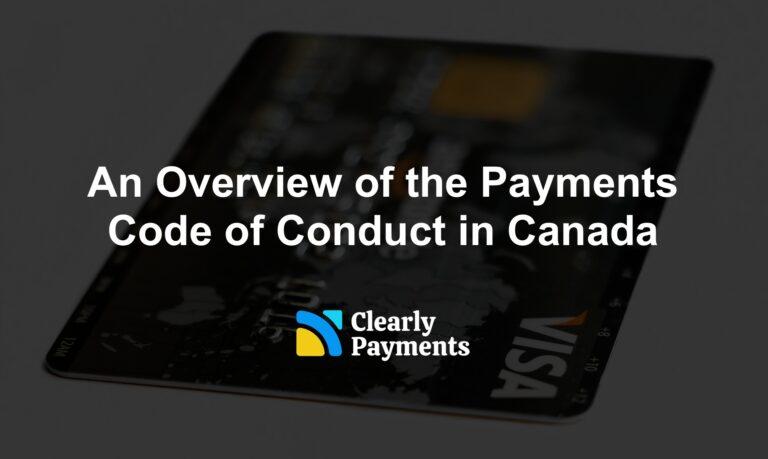Cryptocurrency has been gaining significant attention in recent years. One of the main uses of cryptocurrency is as a form of transferring value: payments. But what exactly is the future of cryptocurrency in payments? Will it disrupt traditional payment systems or will it be relegated to niche markets?
What is cryptocurrency?
Cryptocurrency is a digital form of value that operates independently and can be exchanged peer-to-peer without intermediaries. At least that’s the definition in principle. Cryptocurrency uses decentralized ledger technology, called a blockchain, to record transactions on a public ledger. A public ledger means you can lookup any transaction over the internet on an “explorer”, like Blockchain.com.
The first and most popular cryptocurrency is Bitcoin, created in 2009. Since then, thousands of other cryptocurrencies have been created, each with its own unique features and vision for their utility.
One of the key features of many cryptocurrencies is that it enables secure and fast transactions without the need for intermediaries, such as banks. This makes it possible to send and receive payments anywhere in the world without the need for traditional banking services.
While cryptocurrency has the potential to revolutionize payments and offer new opportunities for people and businesses, it is still a new and rapidly evolving technology.
Advantages of cryptocurrency in payments
One of the main advantages of cryptocurrency as a form of payment is that it is faster, cheaper, and more secure compared to traditional payment methods. Transactions on a blockchain can be processed in just a few seconds or minutes and are secured by complex mathematical algorithms.
This makes cryptocurrency a great option for online payments, cross-border transactions, and micropayments. Some cryptocurrencies can enable you to securely send, for example, $10,000 from Canada to UK in 5 seconds for a cost of $0.02, at any time of day from your mobile device. That’s a very compelling value proposition.
Another advantage of cryptocurrency is that it is decentralized, meaning that it is not controlled by any government or financial institution. This makes it more resistant to censorship and fraud, and it also allows for more privacy in transactions.
Disadvantages of cryptocurrency in payments
Despite the advantages, there are still challenges that need to be overcome before cryptocurrency can be widely adopted for payments across the globe.
One of the main challenges is the lack of widespread acceptance among merchants. While some merchants have started accepting cryptocurrency as a form of payment, it is still not as widely accepted as traditional forms of payment such as credit cards and cash. To put that into numbers, Visa is accepted at around 50,000,000 merchants across the globe, while Bitcoin is accepted at around 20,000 merchants globally. Cryptocurrency has not yet crossed the chasm in user adoption.
The volatility of the value of many cryptocurrencies makes it difficult for merchants to price their goods and services. This is likely one of the largest obstacles that cryptocurrency has for payments. There can be large swings in the value of a cryptocurrency in a matter of hours. This brings uncertainty and risk to merchants.
Cryptocurrency is also relatively complex. The tools, platforms, wallets, and systems have not been standardized therefore there is a steep learning curve in adopting cryptocurrency. The user experience of cryptocurrency needs to be simplified before there is widespread adoption.
Another challenge is the lack of regulation and oversight of the cryptocurrency market. Governments and financial institutions are still trying to understand how best to regulate and supervise the use of cryptocurrency. Until these issues are resolved, it may be difficult for cryptocurrency to gain mass adoption as a form of payment.
Cryptocurrencies that could influence payments
Each cryptocurrency tends to have some vision of their utility. Some are focused on smart contracts, some on AI (artificial intelligence), others on a store of value, and some on payments. Although most cryptocurrencies can be used for payments, some are better suited than others. For a good payment system, you typically want it to be fast, stable, low-cost transactions, with high reliability and security.
Some of the cryptocurrency tokens you should look out for in payments include Ripple (XRP), Bitcoin (BTC) with Bitcoin Lightning, Solana (SOL), and USDC. This is by no means a complete list. Also, the topic of which cryptocurrencies are best used for payments is highly debated. They all have strengths and weaknesses, but one thing is certain is that they have been influencing many emerging payment projects.
The future of cryptocurrency in payments
Despite the challenges, the future of cryptocurrency in payments is promising and is certainly a top trend in payments. More and more companies are starting to accept cryptocurrency as a form of payment, and there are also new decentralized financial systems being built on blockchain technology that could disrupt traditional banking, payment systems, and financial systems overall. Many traditional financial institutions, payment networks, and banks are building cryptocurrency teams for the future.
Cryptocurrency has the potential to provide faster, cheaper, and more secure transactions compared to traditional payment methods. However, there are also challenges that need to be overcome before it can be widely adopted for payments by the masses. The future of cryptocurrency use in payments will depend on a variety of factors, primarily government regulations and the technological advancements to make it easier to use. In the end, you cannot ignore the numbers. It is growing. About 5 years ago, there were about 20 million cryptocurrency wallets in use. Today, in early 2023, that number is around 500 million.




